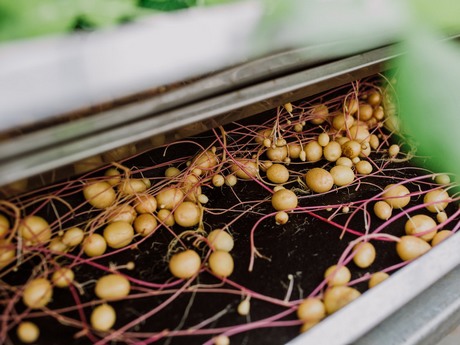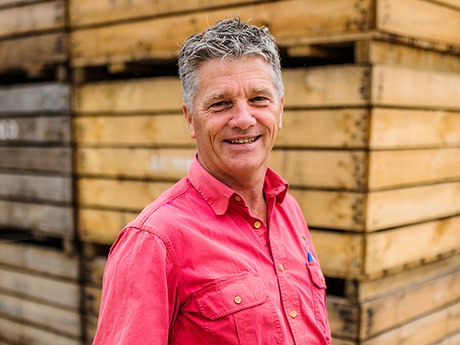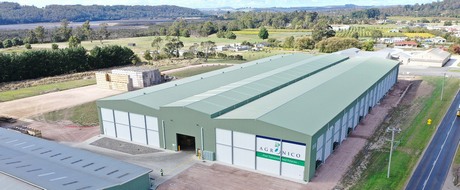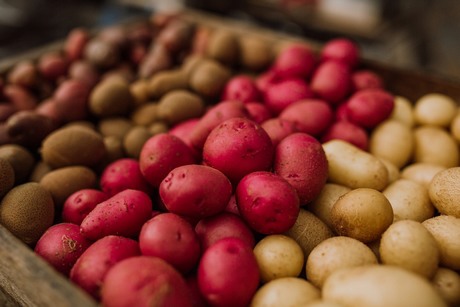Raising the profile of its minituber production will be one of the main aims for Tasmania's leading seed potato and agronomy businesses at this month's Hort Connections in Melbourne.
Agronico was one of the first companies in Australia to introduce its own tissue culture lab, as part of its quality end-to-end seed potato process, which goes through to the final generation product.
"We want to also raise the profile of our minituber production facility," Chief Executive Officer Robert Graham said. "A lot of people know that we produce seed, but don't know that we do minitubers."

The business started almost 30 years ago, providing agronomy services to farmers in potatoes, onions as well as poppies, with the company developing a research arm. From that came expansion, in the introduction of the lab, providing clients with tissue culture.
"We then we developed Australia's only hydroponic minituber facility, which gives very uniform-sized minitubers," Mr Graham said. "The way minitubers are produced by other people is that you stick a plant in a pot, you wait for the plant to grow and die, and then you dig down and see how many minitubers you have and the size of them. With hydroponic minitubers, we lift the lid three times a week, and harvest each tuber when it gets to a particular size. The value to the customer is that it is very uniform tuber size, and the advantage for us is that we get a lot more tubers per plant than a normal pot system."

Photo: Agronico Chief Executive Officer Robert Graham
Having the tissue lab and minituber production as part of the business has many advantages, including the ability to learn new things about the nutrition of new varieties in the hydroponic system, given it is more sensitive to nutrients than soil. Mr Graham says the Agronico team can often pick up clues to optimise the nutrition in field, by seeing what the requirements are in the hydroponic facility.
"The benefit for the customer is that when they bring in a new variety, is that it does not leave Agronico's control until final generation," he said. "For other people, they'll give the tissue to a mintuber lab and they produce minutubers and send them out to a seed grower or two, and there's a lot more chance of leakage."
Agronico supplies major processing companies, such as Simplot and McCain, as well as varieties for Smith's and Snackbrands crisps. The company also supplies the fresh market, with two of Australia's largest packers, right down to the small farmers. There are about 160 PBR varieties in tissue culture, with 40 varieties grown each year, depending on the customer’s requirements.

In 2017, the business was boosted by a state of the art coolstore in Spreyton, the largest of its kind in Tasmania.
"It is probably the most advanced seed potato store," Mr Graham said. "The Tolsma refrigeration system minimises carbon dioxide build up in the stored seed allowing uniform productive crops to be produced. There's huge advantage having the store on-site, because we can check it twice a day, we can load customers whenever we want rather than having to send people off-site."

The company employs two PhD graduates, and two other research officers, to work on a number of projects.
"We were able to look at and successfully control Fusarium breakdown in post-cut seed," Mr Graham said. "We have also looked at managing tuber numbers, and that is important in a seed crop because you are selling tubers - you are not selling weight per hectare, it's tubers per hectare. We've introduced a new herbicide for onions. We work mainly on control of pests and diseases, and then some physiological work and nutrition work on various crops. We also have a few other confidential projects underway."
Agronico will be in booth 290 at Hort Connections.
